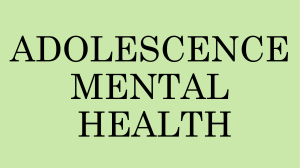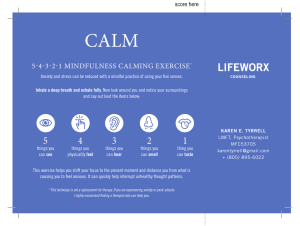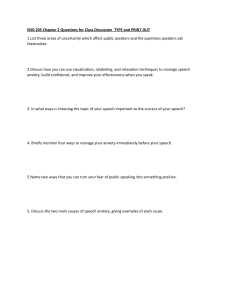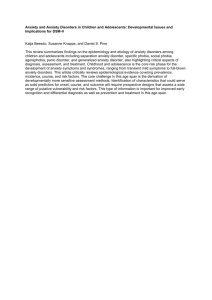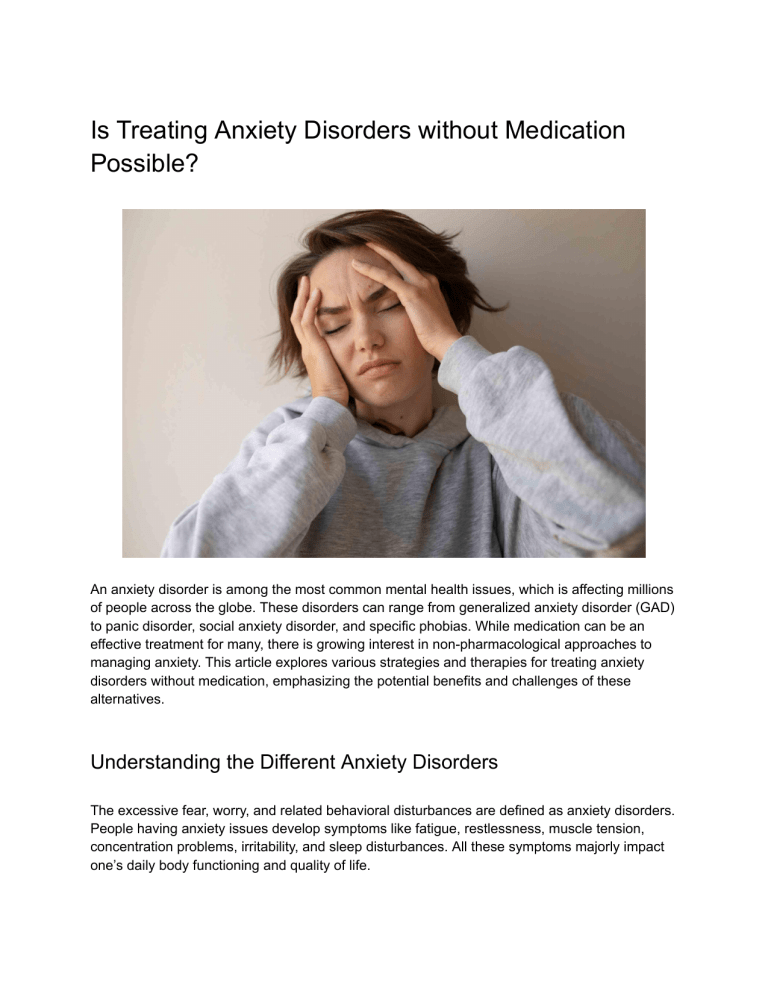
Is Treating Anxiety Disorders without Medication Possible? An anxiety disorder is among the most common mental health issues, which is affecting millions of people across the globe. These disorders can range from generalized anxiety disorder (GAD) to panic disorder, social anxiety disorder, and specific phobias. While medication can be an effective treatment for many, there is growing interest in non-pharmacological approaches to managing anxiety. This article explores various strategies and therapies for treating anxiety disorders without medication, emphasizing the potential benefits and challenges of these alternatives. Understanding the Different Anxiety Disorders The excessive fear, worry, and related behavioral disturbances are defined as anxiety disorders. People having anxiety issues develop symptoms like fatigue, restlessness, muscle tension, concentration problems, irritability, and sleep disturbances. All these symptoms majorly impact one’s daily body functioning and quality of life. In addition, anxiety disorders encompass a range of mental health conditions characterized by excessive fear, worry, and related behavioral disturbances. For treating anxiety disorders, it's essential to understand their different types: Generalized Anxiety Disorder (GAD) Generalized Anxiety Disorder is characterized by chronic, excessive worry about various aspects of daily life, such as health, work, social interactions, and routine circumstances. This worry is difficult to control and often occurs more days than not for at least six months. Panic Disorder Panic Disorder involves recurrent, unexpected panic attacks. These attacks are sudden periods of intense fear or discomfort that peak within minutes. Individuals with panic disorder often worry about the next attack and may change their behavior to avoid potential triggers. Social Anxiety Disorder (Social Phobia) Social Anxiety Disorder is characterized by a significant fear of social or performance situations where the individual is exposed to possible scrutiny by others. The person fears that they will act in a way or show anxiety symptoms that will be negatively evaluated. Separation Anxiety Disorder The excessive fear or anxiety about being separated from those to whom the individual is attached is what Separation Anxiety Disorder is all about. While it is normal in very young children, it can be indicative of a disorder in older children and adults. Selective Mutism A consistent failure to speak in specific social situations where there is an expectation for speaking, despite speaking in other situations is characterized as Selective Mutism. This disorder can interfere significantly with educational or occupational achievement and social communication. Treating Anxiety Disorders Without Taking Medications Treating anxiety disorders without medication is possible through various therapeutic approaches and lifestyle changes. Below, we have mentioned several effective non-pharmacological approaches to manage and reduce anxiety: Cognitive-behavioral therapy (CBT) Cognitive-behavioral therapy (CBT) is a popular, evidence-based treatment for anxiety disorders. It focuses on identifying and modifying negative thought patterns and behaviors that promote anxious feelings. Its key components include ● ● ● Cognitive Restructuring: It helps individuals recognize and challenge distorted thinking patterns. Exposure Therapy: Therapists recommend gradual exposure to feared situations, which reduces the anxiety response. Behavioral Activation: This includes encouraging engagement in activities that are typically avoided due to anxiety. Mindfulness and Meditation Mindfulness and meditation practices help individuals focus on the present moment and reduce excessive worry about the past or future. This practice is beneficial for treating anxiety disorders as it: ● Reduces stress and cortisol levels. ● Improves emotional regulation. ● Enhances cognitive flexibility. To practice mindfulness and meditation on a regular basis, people can choose the following techniques: ● ● ● Mindfulness Meditation: Focuses on breathing and present-moment awareness. Body Scan: Involves paying attention to different parts of the body to release tension. Loving-Kindness: This meditation practice involves generating feelings of love and compassion towards oneself and others. Lifestyle Modifications Making changes to daily habits can significantly impact anxiety levels. By performing regular exercises and having a balanced diet, people get help in treating anxiety disorders. Have a look at the lifestyle modifications below: ● ● ● ● ● ● Regular physical activity releases endorphins, which improve mood and reduce anxiety. Daily activities including walking, yoga, running, and strength training are helpful as well. A balanced diet supports mental health. Foods rich in omega-3 fatty acids, like fish, and antioxidants, like fruits and vegetables, can improve brain health. Limiting caffeine and sugar intake can help reduce anxiety symptoms. Good sleep hygiene is crucial for mental health. Establishing a regular sleep routine and creating a relaxing bedtime environment can improve sleep quality. Techniques like progressive muscle relaxation or guided imagery can aid in falling asleep. Social Support ● ● ● ● Building a strong support system can provide emotional comfort and practical advice. People can opt for the following alternatives: Join Support Groups: Sharing experiences with others facing similar challenges can be empowering. Engage in Community Activities: Volunteering or joining clubs can help build connections and reduce loneliness. Strengthen Personal Relationships: Spending quality time with friends and family provides comfort and reduces anxiety. Alternative Ways to Treat Anxiety Disorders In addition, the following therapies can also alternatively help people manage anxiety issues: ● ● ● ● Acupuncture: It involves inserting thin needles into specific points on the body. It may help reduce anxiety by influencing the body's natural painkillers and regulating the nervous system. Herbal Supplements: Different herbs have been used to alleviate anxiety. However, it's essential to consult a healthcare provider before using these supplements due to potential interactions and side effects. Aromatherapy: Using essential oils like lavender, chamomile, and bergamot in diffusers or massage oils can promote relaxation and reduce anxiety symptoms. Deep Breathing Exercises: Focusing on slow, deep breaths can help calm the mind and reduce physical symptoms of anxiety. ● Exposure Therapy: Gradually exposing oneself to feared situations or objects can reduce anxiety over time. It works by starting with less anxiety-provoking situations and gradually moving to more challenging ones. The Final Lines..! Treating anxiety disorders without medication is achievable through various approaches, including cognitive-behavioral therapy, mindfulness, lifestyle modifications, social support, alternative therapies, and relaxation techniques. These methods require commitment and consistency but can lead to significant improvements in managing anxiety. It's essential to work with healthcare professionals to develop a personalized treatment plan that suits individual needs and circumstances. Related Article: Differences Between Panic Attacks and anxiety Attacks Psychodynamic Therapy For Depression and Anxiety

